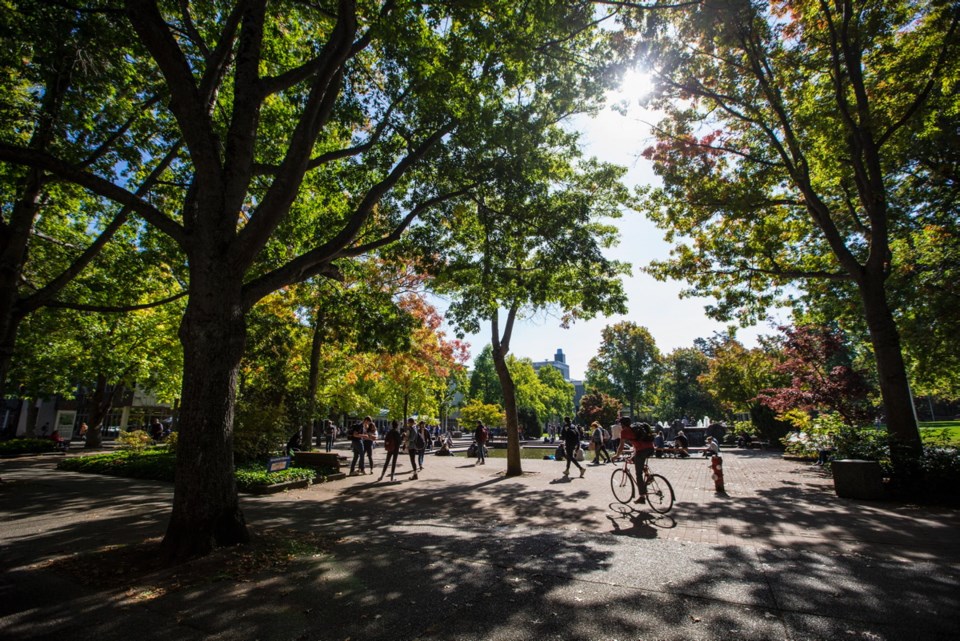The sa���ʴ�ý government has done a great job so far in managing the COVID-19 outbreak. Now it needs to do an equally great job in managing the post-COVID-19 recovery.
Governments everywhere must use the “COVID pause” to re-focus their policies and address the other great global crises we face: Global ecological changes — climate change in particular — that threaten the very underpinnings of society, life and health, and obscenely high levels of inequality. (I will address the latter in my next column.)
In a New York Times commentary on April 28, UN Secretary General António Guterres wrote: “Human conduct is … distorting ecosystem processes that regulate our planetary health and control many services that humans depend on.”
Scientists are warning us, he added, “we are close to running out of time — approaching a point of no return for human health, which depends on planetary health.”
Guterres urged governments around the world to take up his six-point plan for re-building their economies, societies and communities after COVID-19.
He was clear that “a recovery from the coronavirus crisis must not take us just back to where we were last summer. It is an opportunity to build more sustainable and inclusive economies and societies — a more resilient and prosperous world.”
But the early signs in sa���ʴ�ý are not encouraging; the approach appears to be focused on returning to business as usual.
The Economic Recovery Task Force Premier John Horgan announced in early April has an alarmingly narrow base: The premier and several of his staff, the ministers and deputy ministers of Finance and of Jobs, Economic Development and Competitiveness, and the deputy minister of labour. On the non-governmental side, five conventional business organizations, the sa���ʴ�ý Federation of Labour, a couple of social service organizations and a national First Nations group focused on major projects.
Nobody from the green/sustainable business or clean energy sectors, no minister of Environment and Climate Change or of Energy, Mines and Petroleum Resources. Indeed, Andrew MacLeod, The Tyee’s legislature bureau chief in Victoria, wrote last week that in a phone call with some leading sa���ʴ�ý environmental organizations, Horgan said “many British Columbians just want the sense of security that comes with returning to how things were.”
But that is not good enough. The sa���ʴ�ý government must commit not simply to economic recovery, going back to how things were, but to creating a sustainable, just and healthy society. This includes bringing in a budget focused on well-being, as New Zealand did last year. Additionally, the government should revive the seemingly abandoned task force established as part of the NDP/Green Party Accord to propose alternatives to the GDP for measuring progress.
Another important step would be to add appropriate environmental and population health expertise to the Economic Recovery Task Force, adjusting its mandate, if need be, as part of this broader societal purpose.
Since much of the ecological footprint is due to carbon emissions, we need an economic strategy that moves us swiftly to a low-carbon future. The good news is that the government is apparently committed to making its CleanBC initiative part of the economic recovery, MacLeod reported. But we need more than just a clean energy strategy.
The economic recovery must also focus on reducing our overall footprint, moving us toward being a “One Planet” society.
This includes reducing consumption, conserving and recycling all forms of resources; increasing environmental protection and ecological restoration; preventing pollution and strictly implementing the “polluter pays” principle (so no public funding for cleaning up the mess left by the fossil fuel and other sectors) and full-cost accounting of all products and services.
If the COVID-19 pandemic has taught us anything, it is that in the face of a major societal crisis governments can act quickly and decisively and people can rapidly change their values, expectations and way of life.
Now we need to apply at least the same level of effort to addressing the much larger societal crisis of our unsustainable economy and way of life.
We need to make a just transition not just to a low-carbon future, but a green, just and healthy future.
Any economic or other policy change that does not take us in that direction must be rejected.
Dr. Trevor Hancock is a retired professor and senior scholar at the University of Victoria’s School of Public Health and Social Policy.



